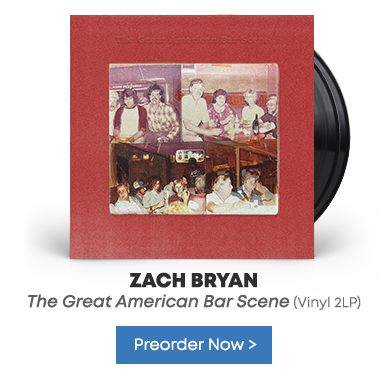Disco lives. Roughly four decades after the genre rose to prominence in underground clubs, the festive and sexy mix of dance, funk, and soul continues to slink its way into popular culture. Consider: The juicy guitar heard in Lady Gaga's just-released "The Cure" nods to the genre. Artists such as Justin Timberlake, Daft Punk, and LCD Soundsystem entirely embrace it. Earlier this spring, the Rock & Roll Hall of Fame honored one of the style's purveyors, Chic's Nile Rodgers. And this week, Capitol/UMe reissued Saturday Night Fever on vinyl to celebrate the film's 40th anniversary. Driven by the music of the genre-hopping Bee Gees, who rose to disco prominence in part due to the film's success, the newly reissued soundtrack gives us reason to look back at five artists that found disco too irresistible to ignore.
The Bee Gees
The Bee Gees didn't start out as a disco group. But the trio didn't suddenly discover the genre, either. In the 60s, the band specialized in dreamy, baroque pop. Guitars were present, but so were pianos, harmonies, and soft, spacey synthesizers. It's hard, for instance, to discount the presence of the Beatles on the Bee Gees' 1967 album, Bee Gees' 1st. During the early 70s, the group continued to experiment, bringing in folk and R&B threads. The latter began to stick, and the Bee Gees found a groove when the brothers started sprinkling in more funk. All these influences – as well as the sounds of New York and Philadelphia dance floors – came to a head on Saturday Night Fever, from which "Stayin' Alive" became a signature disco song marked by Barry Gibbs' gracefully sensuous falsetto, a lithe R&B bass line, and sinuous guitars.
Blondie
As an underground New York band in the mid-70s, Blondie was no doubt hip to the sounds of disco. Despite being regulars at the cutting-edge rock club CBGB, Blondie soon went full-on disco for "Heart of Glass," its first breakout hit in the U.S. The song, band members said, had long existed in a reggae-like form, but influences, such as European electronic music, played a role in the synth-focused revamp. Vocalist Debbie Harry, whose feather-light approach gives the tune its lift, once told Vanity Fair that Joan Jett was "highly offended that we did [a disco song]." But it shouldn't have been a shock. Blondie even dipped into disco for covers at its concerts (search out its rendition of Donna Summer's "I Feel Love"). Today, "Heart of Glass" stands as an early example of a rock band taking a borderless approach to music.
Kiss
In 1976, Kiss, in all its over-the-top makeup and comic-book-like imagery, released Destroyer, an album that featured a now-classic song that re-christened the Motor City as "Detroit Rock City." A few years later, however, Kiss, for all intents and purposes, made a play for the New York nightclub Studio 54. "I Was Made for Loving You" moved away from theatrics and put the emphasis on the band's steamy side. Despite becoming the band's biggest chart success to date, Kiss proved merely tourists. The song isn't as provocative – or evocative – as Donna Summer's "Love to Love You Baby." It's disco at its slickest, and counts a songwriting assist from hit-maker Desmond Child. And while the Top 10 single flashes some hard-rock guitar muscle, it's the stealthy, cymbal-heavy beat that propels everything forward.
The Rolling Stones
Last year, the Rolling Stones got back to bluesy basics with Blue & Lonesome. The move seemed remarkably old-fashioned for the group, which over the past three decades flirted with contemporary production techniques. While the band helped define modern rock n' roll, it was also regularly influenced by mainstream trends – few times more obviously than on 1978's Some Girls. The album's signature single, "Miss You," essentially found the Stones going disco. But the Stones don't fully give into the genre. The smash hit is disco, yes, but disco marked by a dive-bar feel. Jagger, even when providing almost-spoken-word deliveries, manages to keep his swagger, and drummer Charlie Watts plays the rhythm like an R&B song. Bill Wyman's bass, flavored with a dangerous, serpentine tone, runs down the tune's spine.
The xx
Modern interpreters of electronic soul, British trio the xx lightens up ever so slightly on its latest album, I See You. The lead single "On Hold" boasts a number of xx hallmarks – including a melancholic tone and back-and-forth vocals between Romy Croft and Oliver Sim. New twists involve a sample of Hall & Oates' "I Can't Go for That (No Can Do)" and a brighter shade of balladry from composer/DJ/technician Jamie XX. The group also showcases its most overt disco influences to date, providing dance-ready accompaniment to its usual mood of romantic desperation and a buzzing, direct bass tailored to pair with platform heels and white leisure suits.
21st Apr 2017




































